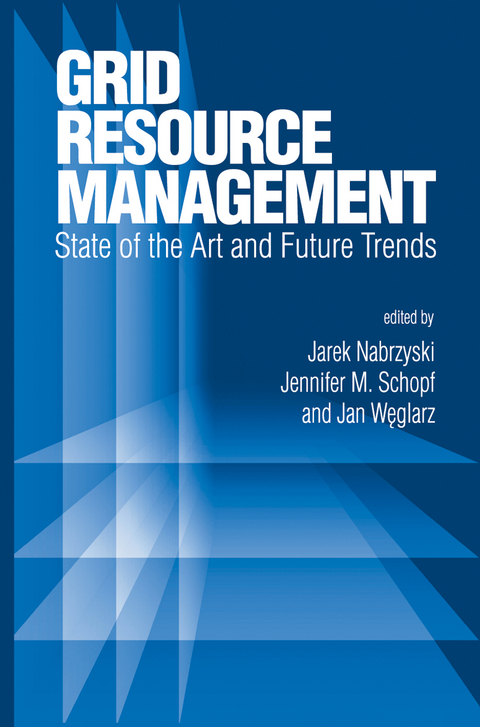
Grid Resource Management
Springer-Verlag New York Inc.
978-1-4020-7575-9 (ISBN)
While Grids have become almost commonplace, the use of good Grid resource management tools is far from ubiquitous because of the many open issues of the field, including the multiple layers of schedulers, the lack of control over resources, the fact that resources are shared, and that users and administrators have conflicting performance goals.
I Introduction to Grids and Resource Management.- 1 The Grid in a Nutshell.- 2 Ten Actions When Grid Scheduling.- 3 Application Requirements for Resource Brokering in a Grid Environment.- 4 Attributes for Communication Between Grid Scheduling Instances.- 5 Security Issues of Grid Resource Management.- II Resource Management in Support of Collaborations.- 6 Scheduling in the Grid Application Development Software Project.- 7 Workflow Management in GriPhyN.- III State of the Art Grid Resource Management.- 8 Grid Service Level Agreements.- 9 Condor and Preemptive Resume Scheduling.- 10 Grid Resource Management in Legion.- 11 Grid Scheduling with Maui/Silver.- 12 Scheduling Attributes and Platform LSF.- 13 PBS Pro: Grid Computing and Scheduling Attributes.- IV Prediction and Matching for Grid Resource Management.- 14 Performance Information Services for Computational Grids.- 15 Using Predicted Variance for Conservative Scheduling on Shared Resources.- 16 Improving Resource Selection and Scheduling Using Predictions.- 17 The ClassAds Language.- 18 Multicriteria Aspects of Grid Resource Management.- 19 A Metaheuristic Approach to Scheduling Workflow Jobs on a Grid.- V Data-Centric Approaches for Grid Resource Management.- 20 Storage Resource Managers.- 21 NeST: A Grid Enabled Storage Appliance.- 22 Computation Scheduling and Data Replication Algorithms for Data Grids.- VI Quality of Service: QoS.- 23 GARA: A Uniform Quality of Service Architecture.- 24 QoS-Aware Service Composition for Large-Scale Peer-to-Peer Systems.- VII Resource Management in Peer-to-Peer Environments.- 25 A Peer-to-Peer Approach to Resource Location in Grid Environments.- 26 Resource Management in the Entropia System.- 27 Resource Management for the Triana Peer-to-Peer Services.- VIII Economic Approachesand Grid Resource Management.- 28 Grid Resource Commercialization.- 29 Trading Grid Services within the UK e-Science Grid.- 30 Applying Economic Scheduling Methods to Grid Environments.- References.
| Erscheint lt. Verlag | 31.10.2003 |
|---|---|
| Reihe/Serie | International Series in Operations Research Management Science ; 64 |
| Zusatzinfo | XXI, 575 p. |
| Verlagsort | New York, NY |
| Sprache | englisch |
| Maße | 155 x 235 mm |
| Themenwelt | Mathematik / Informatik ► Informatik ► Theorie / Studium |
| Wirtschaft ► Allgemeines / Lexika | |
| Wirtschaft ► Betriebswirtschaft / Management | |
| ISBN-10 | 1-4020-7575-8 / 1402075758 |
| ISBN-13 | 978-1-4020-7575-9 / 9781402075759 |
| Zustand | Neuware |
| Informationen gemäß Produktsicherheitsverordnung (GPSR) | |
| Haben Sie eine Frage zum Produkt? |
aus dem Bereich


